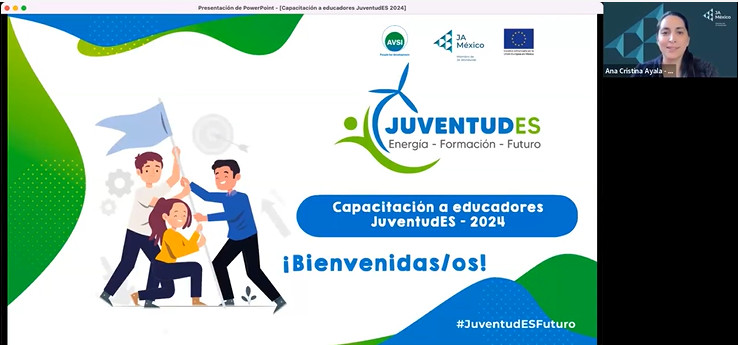The COVID-19 pandemic has left a deep mark on education, significantly affecting the socio-emotional and socio-labor skills of young people. In light of this situation, the JuventudES Project has developed a Training and Support Model that responds to the current needs of educational institutions, seeking synergies with civil society organizations (CSOs) specialized in these issues.
The JuventudES Project's Training and Support Model is a response to the urgent need to strengthen the skills that companies demand, especially those that have been weakened by the social barriers imposed during the pandemic. This model seeks to strengthen the capacities of young people through a series of tools and activities that address key areas such as basic financial education, entrepreneurship, labor rights, and job search techniques. Through this comprehensive approach, students are expected to acquire practical knowledge that will allow them to successfully face the world of work.
In addition to these tools, the model focuses on the creation of spaces for socio-emotional support. These spaces are designed to foster peer support, complemented by guidance from experts in psychopedagogy and vocational guidance. This support is crucial for young people to develop a deeper understanding of themselves and their professional aspirations, as well as allowing them to have support in applying for vacant jobs, seeking to evaluate, improve and iterate the process until achieving the objective.
However, a constant challenge for CSOs involved in this type of project is the limited funding. For this reason, sustainability actions become crucial. It is necessary to implement strategies that allow the continuity of these programs over time, ensuring that more young people can benefit from these trainings and achieve successful job placement.
On August 26, the 2024 Educator Training Course began, a key action that will end on September 20. This course, in its third edition, is conducted virtually and is designed to train educators in the implementation of 5 essential modules: socio-emotional, work, basic technical, and entrepreneurial skills.
The program seeks to equip teachers with tools that allow them to support young people in the development of skills and their transition to the workforce. In this edition, institutions from the middle-higher subsystems, as well as professional academic institutions and civil society organizations (CSOs) from the states of Querétaro, Guanajuato and Yucatán participate.
Through this training, educators are expected to be able to transmit this knowledge and skills to their students, helping them develop competencies that are increasingly in demand in the labor market. In addition, the program reinforces the importance of socio-emotional skills, which are essential for both personal and professional success of young people.
This joint effort between educational institutions and NGOs is an important step towards creating synergies that favour the labour insertion of young people in an increasingly competitive environment. The active participation of educators is crucial to ensure that these modules have a lasting impact on future generations.
In summary, the JuventudES Project's Training for Educators represents a valuable transfer of capabilities to educational institutions, with the aim of preparing young people for the challenges of the current and future world of work.






